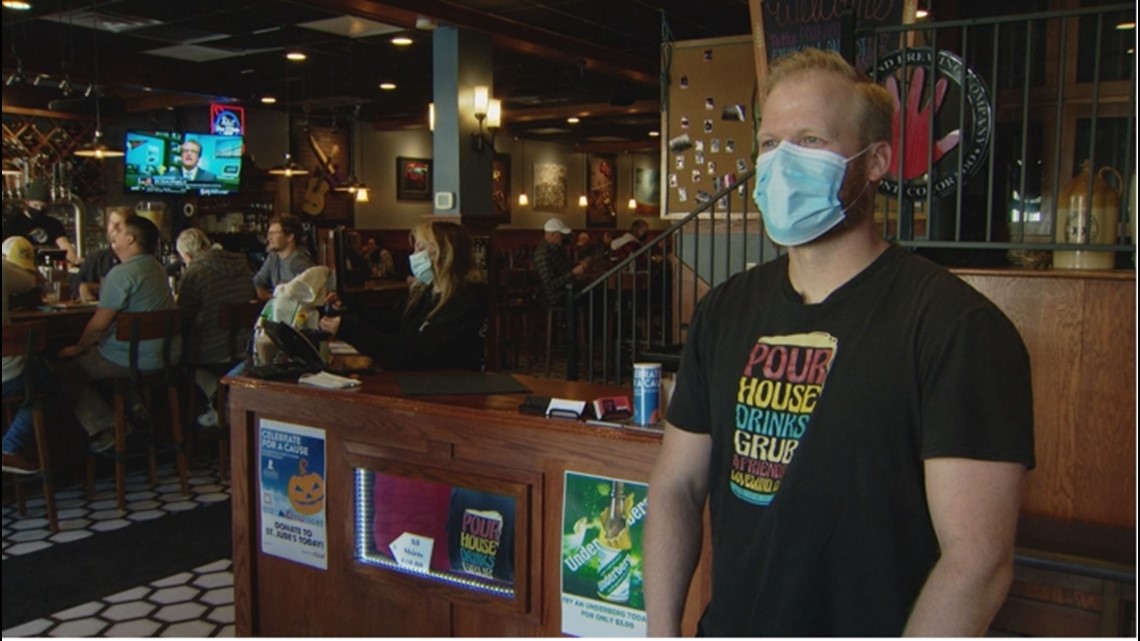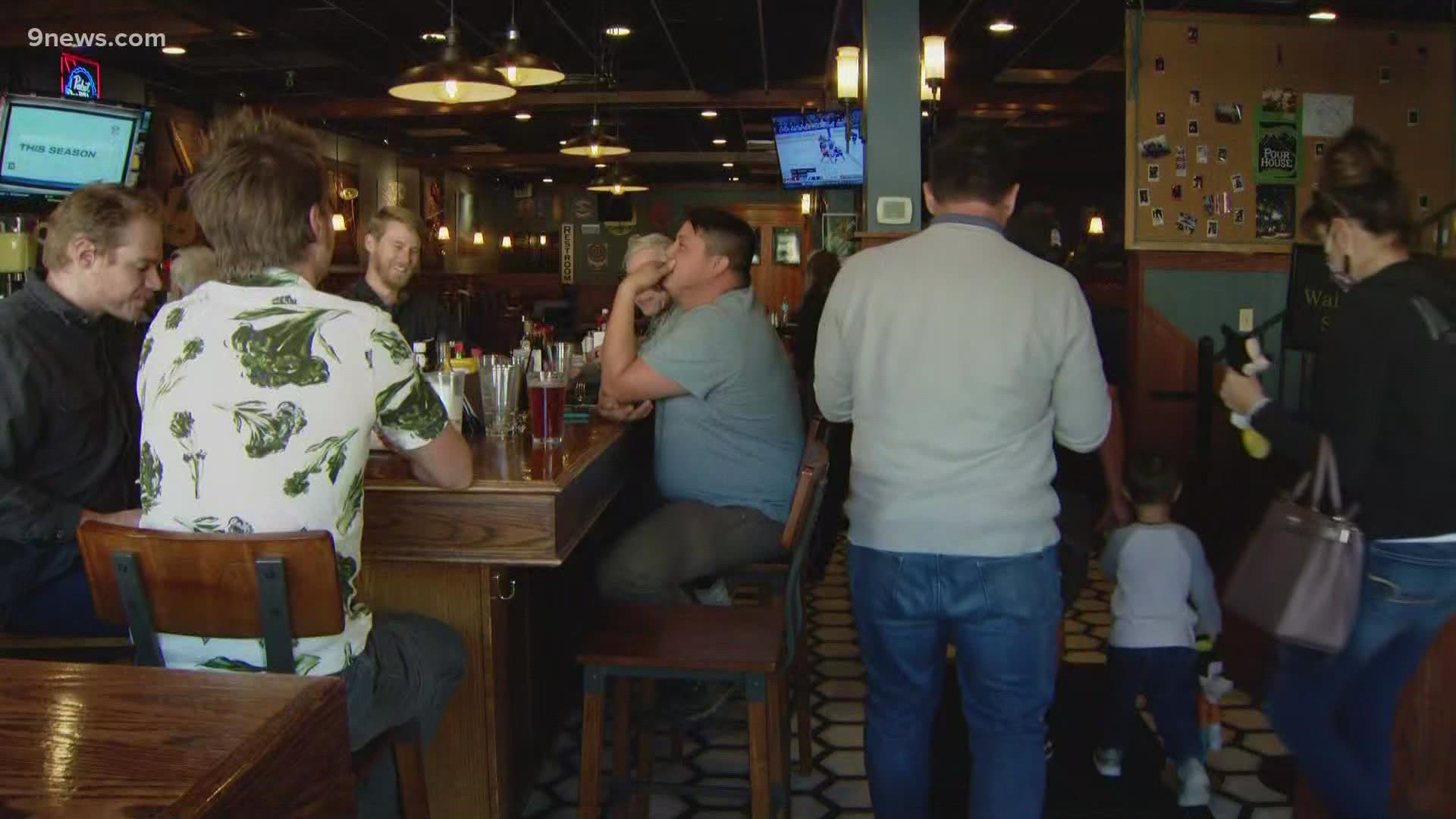LARIMER COUNTY, Colo. — Local health leaders met for the first time since August as part of the governor's expert "emergency epidemic response" committee, describing the COVID-19 pandemic situation as becoming more dire by the day.
They said in a best case scenario, the state would exceed 2,000 people in the hospital before Christmas, making it the worst wave of COVID-19 the state has seen throughout the entire pandemic.
While Gov. Jared Polis and the state say they're taking steps to slow the spread of COVID as Colorado's hospital bed capacity hits an all-time low, other counties have been trying to stop local spread.
Larimer and Boulder Counties have reinstated mask mandates recently, and while some hospitals in Larimer County are seeing capacity grow tighter, some businesses are hoping the tide turns soon, so that business doesn't suffer.
Hoping for the best, while continuing to work
Pourhouse Bar and Grill has been a staple in Loveland's downtown for around a decade. Even on a Wednesday afternoon, customers fill the restaurant.
"Absolutely, they're what makes us work." owner Chris Kline said, referring to his longtime customers.
At the front of the restaurant is a sign seen on many other businesses in Larimer County, notifying residents that masks are required inside.
While some businesses have said revenue overall has been a rollercoaster because of the mandate, Kline said there haven't been many issues so far.
“This one has not been as hard to deal with. Most people have been very polite and nice. Honestly it’s almost to the point where I forget to even remind them about the mask because there’s so few of them," Kline said.
There have not been any known discussions by local leaders about bringing back indoor capacity limits or statewide mask mandates. Kline worries that because cases are so high and the hospital's capacity is quickly filling, it could impact business.
"We want to be able to be open. It’s just such a difference in feel, everything, it just makes it feel like a restaurant. When you’re at half capacity, it just doesn’t have like the same enjoyment for people to go out to eat," he said. “It is the scariest part of all of this for us.”
Overall, he feels that if more people get the vaccine, the situation will turn around. Most of all, he just wants to keep his employees working.
“It’d be helpful if more people got it. We should be getting through this quicker than we are right now," he said.


Caught off guard
Kevin Unger, the President and CEO of UCHealth's Poudre Valley Hospital and Medical Center of the Rockies, told 9NEWS Wednesday that things are really tight within the facilities.
The biggest issue they're facing, he said, is the stay incurred by their COVID-19 patients.
"We traditionally see a three-day average length of stay, if a patient ends up in our intensive care unit, it's well over a 15-day like this day that we're seeing in, so we're not able to free up those beds for other patients," Unger said.
Additionally, they're seeing patients suffering from other things like trauma and cardiac issues.
"The difference between some of the earlier surges and where we are today is just the absolute volume of patients that we're seeing through our emergency departments," he said.
They've been having to double up patients in rooms in their ICU, and operating room nurses are going up to the COVID-19 units to help out.
"And it is quite impactful to walk through our ICU use and see two patients in a room that are on a ventilator and intubated. And it's room after room. Our cardiac intensive care unit at Medical Center in the Rockies really doesn't have many cardiac patients in it. It is a lot of COVID and trauma," he said.
According to the most recent COVID-19 patient data from UCHealth, 343 people are hospitalized for the virus in UCHealth's hospitals.
Of those, 266 are unvaccinated.
Out of the 109 ICU cases, 99 are not vaccinated.
For those on ventilators, 86 out of the 94 patients are unvaccinated.
"We all rejoiced as health care providers, thinking the end was in sight. So to be where we are today with this surge and these high volumes of patients that we're seeing, it is definitely disheartening," he said.
He said the most prominent way out of the pandemic is for people to get vaccinated.
Generally speaking, he's also supportive of anything to decrease the spread of the virus.
"We are truly, truly supportive of anything that could potentially decrease the spread of not only COVID, but we're also concerned because we're heading into the flu season as well. We started to see RSV in kids in August, which is the earliest cases we've ever experienced. And so anything that will keep patients out of these facilities, I think, is positive," Unger said.
SUGGESTED VIDEOS: COVID-19 Coronavirus

